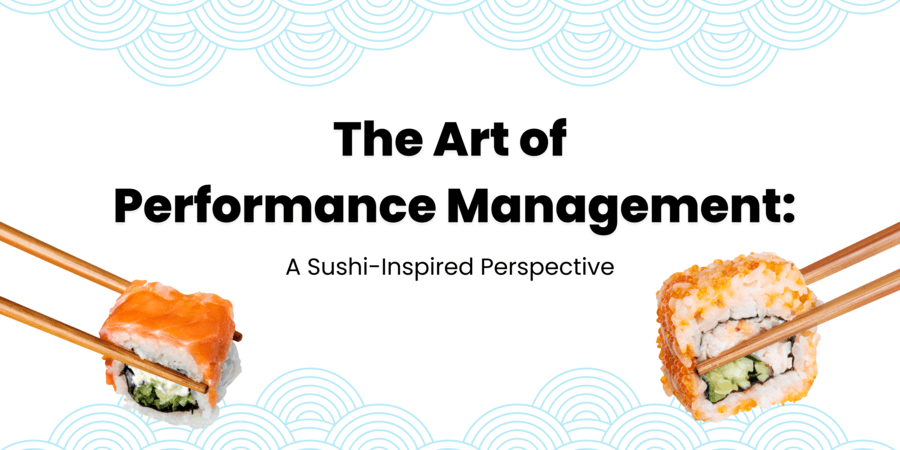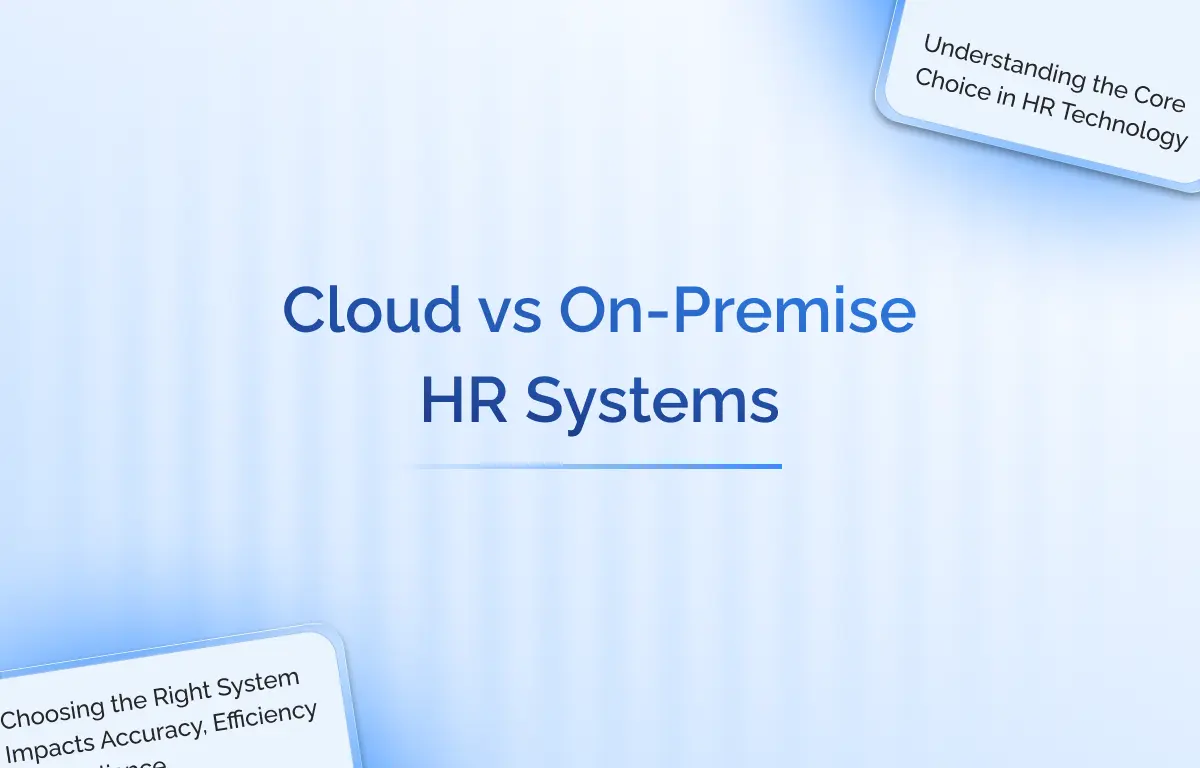
The Art of Performance Management: A Sushi-Inspired Perspective
Introduction
In the realm of effective performance management, finding the perfect blend of ingredients is key to success. Much like sushi, where the quality and harmony of each component contribute to the overall dining experience, performance management demands careful planning and execution to achieve desirable outcomes.
This blog will delve into the art of performance management, drawing parallels to the world of sushi, to explore the essential elements that foster growth, productivity, and job satisfaction within organizations.
Set clear expectations, just like the rice
At the heart of every great sushi roll lies the rice—the foundation that binds the other ingredients together. Similarly, performance management relies on setting clear expectations as the equivalent of well-cooked rice. Just as sushi rice sets the stage for the other components, clearly defined goals and expectations provide a solid foundation for employees to perform at their best. Managers must communicate objectives and responsibilities effectively, ensuring that employees understand what is expected of them and how their contributions align with the broader organizational vision.
By establishing clear expectations, employees gain a sense of direction, purpose, and accountability, fostering a conducive environment for growth and development. Regularly revisiting and reinforcing these expectations will help keep employees on track and motivated to achieve their best performance.
Provide timely and specific feedback, like fresh fish
A hallmark of exceptional sushi lies in the use of fresh, high-quality fish. Similarly, in performance management, providing timely and specific feedback is crucial. Just as sushi chefs meticulously select the freshest fish for their creations, managers must offer feedback that is relevant, actionable, and personalized. Timely feedback allows employees to address areas of improvement promptly and capitalize on their strengths.
Effective feedback mechanisms should be two-way, encouraging open communication between managers and employees. Regular check-ins, performance reviews, and constructive feedback sessions enable employees to gain valuable insights into their performance, fostering a growth-oriented mindset. Employees who receive consistent and constructive feedback feel valued and supported, leading to increased engagement and productivity.
Encourage collaboration, Like different sushi rolls
Sushi rolls come in various shapes and sizes, each comprising a unique combination of ingredients. Similarly, organizations consist of diverse teams, each member possessing their own set of skills and strengths. Performance management should foster an environment of collaboration among team members, mirroring how different sushi rolls complement each other.
Emphasizing teamwork and creating opportunities for cross-functional collaboration enhances creativity, problem-solving, and innovation within an organization. Managers should promote a culture of open communication, where team members can freely share ideas and work together to achieve common goals. Collaboration allows employees to leverage each other’s expertise, leading to improved efficiency and better outcomes.
Align goals and development, akin to wasabi and ginger
Wasabi and ginger are commonly served alongside sushi, enhancing the overall dining experience. Similarly, aligning individual goals with the organization’s objectives is essential in performance management. Managers must work closely with employees to identify areas for development that align with company goals. This alignment ensures that employee growth is not only beneficial to individuals but also contributes to the overall success of the organization.
Setting individual development plans that align with organizational objectives helps create a shared sense of purpose and direction. Employees are more likely to stay motivated and committed when they understand how their personal growth contributes to the organization’s success. Additionally, aligning goals and development plans allows managers to identify potential leaders and nurture talent effectively. This can be done with ease.
Celebrate achievements, like a well-plated sushi dish
Presentation is key in the world of sushi. A masterfully plated sushi dish not only looks aesthetically pleasing but also indicates the chef’s attention to detail. Similarly, recognizing and celebrating employee achievements is crucial in performance management. By acknowledging their accomplishments, managers can boost employee morale, motivation, and overall job satisfaction.
Celebrating achievements can take various forms, from public acknowledgment in team meetings to tangible rewards or bonuses. Such recognition reinforces positive behaviours and encourages employees to continue performing at their best. Moreover, it fosters a sense of appreciation and belonging within the organization, creating a positive work culture that attracts and retains top talent.
In conclusion, performance management, much like the art of creating sushi, requires meticulous attention to detail and a thoughtful approach. By setting clear expectations, providing timely feedback, encouraging collaboration, aligning goals, and celebrating achievements, organizations can create a performance management process that is as harmonious and satisfying as a perfectly crafted sushi roll. This holistic approach to performance management not only enhances individual performance but also strengthens the overall organizational success in the long run.























